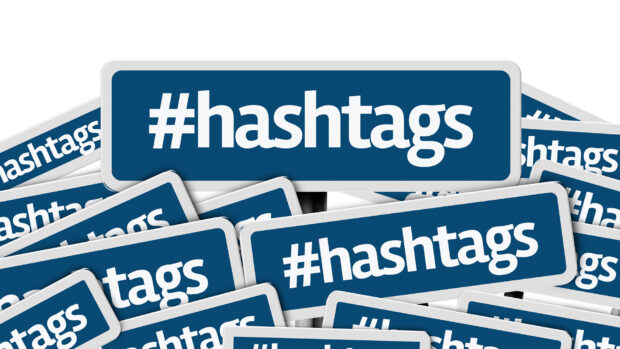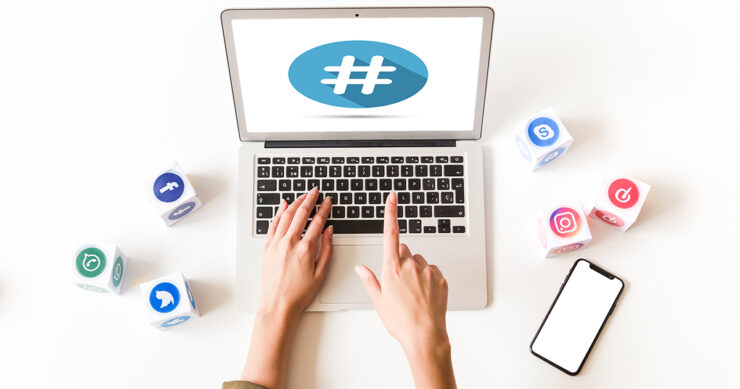Social media has revolutionized the way we communicate and do business. With the power to connect with millions of people worldwide, brands and businesses are leveraging social media to engage with their customers and build their reputations. However, with great power comes great responsibility. Social media can make or break your online presence in minutes. One of the essential tools that social media offers is hashtags. Hashtags are more than just keywords preceded by the # symbol; they are the digital glue that holds conversations together. In this blog post, we will explore the power of hashtags and how they can influence your digital reputation on social media platforms.
1. Hashtags Guide User Experience

Social media platforms employ algorithms to filter content and show users specific content based on their preferences and history. Hashtags guide this algorithm to find relevant content, which is then shown to the user. When used correctly, hashtags help your content reach more people, improve engagement, and attract new followers. But, when used incorrectly, hashtags can have the opposite effect. Using irrelevant, generic, or overused hashtags can lead to your content being lost in the sea of posts, rendering them useless. You can connect with a reliable online reputation service that also deals with negative search results. They can help you strategically use hashtags to improve your online visibility and engagement and help maintain a positive online reputation.
2. Audience Perception
Hashtags are crucial in shaping your audience’s perception of your brand or business. Hashtags help you create a brand voice and communicate with your audience effectively. Consistency in using hashtags is vital; it helps your audience know what to expect from your brand and helps avoid confusion. However, inconsistent use of hashtags can lead to a mismatched brand image and a bad digital reputation. Researching and identifying hashtags for your social media strategy must ensure they align with your brand voice and objectives.
3. Industry Trends

Hashtags are also significant in tracking industry trends, staying updated, and creating content that resonates with your target audience. Following trending hashtags, you can identify current and emerging issues, changing behaviors, or public opinion and create content accordingly. This helps you stay ahead of the curve, remain relevant, and build an engaged audience. However, jumping on bandwagon trends or using controversial hashtags that don’t align with your brand values and objectives can backfire and cause damage to your digital reputation.
4. Community Building
Hashtags help build a community around your brand, product, or service. Communities provide a platform for loyal customers, advocates, and influencers to interact, share experiences, and create a sense of belonging. Creating a unique hashtag that resonates with your community builds brand loyalty, rewards customers, and encourages engagement. However, neglecting your community, using cliched or generic hashtags, or ignoring customer feedback can damage trust, reputation, and business.
5. Crisis Management

Finally, hashtags are potent tools in crisis management. Addressing customer concerns, complaints, or negative feedback on social media can be daunting, especially when these conversations are public. Creating a unique hashtag that aligns with your brand values, objectives, and crisis communications strategy can help centralize these conversations, ensure consistent messaging, and provide clarity to your audience. However, failing to manage a social media crisis, ignoring customer concerns, or responding unprofessionally can cause significant damage to your digital reputation.
Final Thoughts
In conclusion, hashtags are powerful tools that can make or break your digital reputation on social media. They guide user experience, shape audience perception, track industry trends, build a community, and aid in crisis management. Utilizing hashtags effectively can significantly amplify your brand or business’s reach, improve engagement, and attract new followers. However, using hashtags shallowly or incorrectly can have the opposite effect and cause significant damage to your digital reputation. As a brand or business, it’s essential to research and identify the right hashtags to use in your social media strategy, ensure consistency, and monitor conversations to avoid any reputational damage.



























